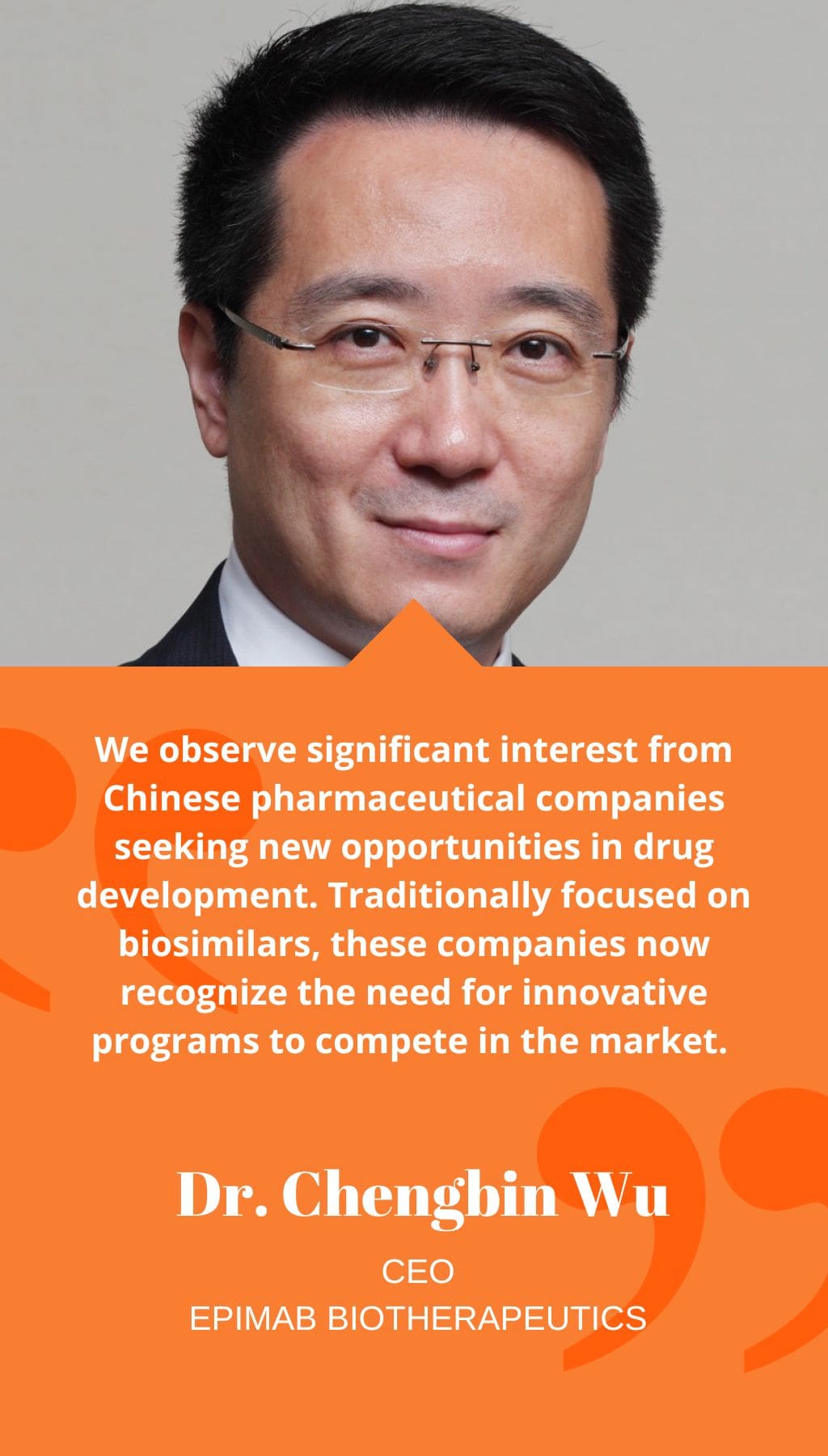
- China | 18 July 2018

EpimAb is a privately owned company established in 2015. Can you briefly introduce the company’s core focus?
Certainly. EpimAb is an innovation-driven biotech company that is built upon a proprietary technology called Fabs-In-Tandem (FIT-Ig). This technology represents a new generation of bi-specific antibodies. We take a platform approach, collaborating extensively with companies in China, the US, and Europe. These collaborations involve technology sharing and early-stage projects. Additionally, we have a strong focus on internal product development, particularly in the field of oncology. Our pipeline has expanded into several important areas, including second-generation target therapy, molecules in immuno-oncology, and T cell engager mechanisms.
How have you been funding the company’s activities so far?
Last year, we successfully completed our Series A funding, raising US$25 million. Currently, we have initiated our Series B round financing, aiming to raise an additional US$50 million. These funds will support our programs through Phase II. Funding is a crucial milestone for us, and we are actively seeking financial support. For our internal program, we plan to file the IND (Investigational New Drug) application in mid-July in China and in August in the US. While listing in Hong Kong presents an interesting opportunity, our initial plan was to pursue an IPO on the NASDAQ.
Can you elaborate more on your FIT-Ig technology and the benefits it offers?
Although several technologies have been developed in the bi-specific antibody space, there are still challenges related to drug-like properties and manufacturing efficiency. Many existing technologies face biology issues due to the arrangement of two binding domains, resulting in steric hindrance problems. EpimAb’s FIT-Ig technology aims to overcome these challenges and provide a more universally applicable solution. By criss-crossing the two FABs (antibody fragments), we can avoid heavy and light chain mispairing issues while maintaining the structural integrity of both FABs. This approach ensures the production of more stable therapeutic molecules.
Where are you seeing the most potential and interest in licensing this technology?
We observe significant interest from Chinese pharmaceutical companies seeking new opportunities in drug development. Traditionally focused on biosimilars, these companies now recognize the need for innovative programs to compete in the market. An example is Innovent, a company with robust research and development capabilities, with whom we have a technology license deal. Additionally, there is collaboration potential in the global biotech space, where many companies are conducting research and development programs on new targets. The bi-specific approach of combining two antibodies offers an interesting avenue for differentiation.
What is the vision for EpimAb going forward?
Our key focus as a startup in the current Chinese climate is to establish a strong differentiation strategy. Our bi-specific platform provides us with leverage in this regard. The key to successful bi-specific development lies in identifying synergistic mechanisms that can only be achieved with a bi-specific molecule. This differentiation is crucial in comparison to antibody therapies or combinations of two antibodies. Through our program development, we aim to achieve this aspect. Moreover, we position ourselves as a global company, emphasizing collaboration and co-development opportunities worldwide. In the next two or three years, we anticipate advancing our first program to Phase II and initiating two other anti-cancer programs in Phase I, both in China and the US.














